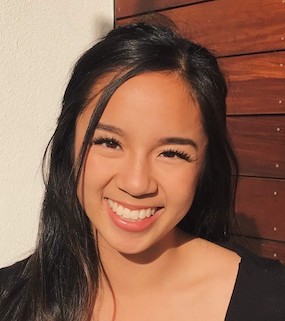The California legislature is considering a proposal to lowerthe voting age — sort of. The votes of 16- to 17-year-olds wouldeach count as half of a vote, while the votes of 14- to15-year-olds would each count as a quarter of a vote.
By weighing a proposition of this nature, the Legislature isacknowledging the inherent unfairness of demanding taxation fromyouth without representation. By suggesting change in only half-and quarter-measures, the Legislature is demonstrating anunwillingness to really address that unfairness.
Other states, such as Florida, Texas, and Hawaii, and othercountries such as Britain and Canada, have also proposed loweringthe voting age to 16. Only California has proposed the “half-vote”solution.
On a recent NPR talk show, callers responded to the issue witheither support or three central arguments. Most respondents opposedto the concept argued that teenagers are too busy to participate,too immature to be good voters, and that their interests wereserved by the adults in their lives.
Teenagers are busy with school, activities, and sometimes jobs.But being busy with these things implies that they have a stake intheir communities, just as older voters do. Rights aren’t portionedout on the basis of whether or not citizens will have enough freetime to exercise them, but because we recognize that people deservefair treatment, respect, and a say in their communities.
It’s true that most 14- to 18-year-olds are immature. So aremany adults, and this doesn’t preclude them from voting, providedthey haven’t committed a felony.
By giving young citizens the right to be represented ingovernment at a younger age, we would be giving them an opportunityto develop mature voting habits. If the voting age were lowered toroughly match up with the age most kids begin high school, civicslessons would take on a whole new meaning.
With the voting age set at 14 in California, high schoolstudents would have four years to develop a habit of becominginformed, responsible voters. At present, the voting age matchesthe age at which a person can be drafted.
Lowering the voting age would mean young people could influencetheir country’s decision to go to war in the first place. Theycould have a say in the makeup of the school boards, city council,and state governments that make decisions that affect their homes,lives, and education.
Before women won the right to vote, they fought the argumentthat the votes of the men in their life were sufficient to servetheir interests. Young people should not have to fight that battleall over again.
It should be clear, after America’s long history, that taxpayersold enough to form their own opinions should have representation ingovernment. Young adults are often frustrated because they are atan age when they can develop their own independent worldview, buthave few opportunities to effect actual change.
When the voting age was lowered from 21 to 18 over 30 years ago,there was a brief spike in voter turnout followed by a decades-longgradual decline. The Pew Charitable Trusts estimated only 28percent of citizens between the ages of 18 and 25 voted inelections in the year 2000.
A study conducted for Pew Charitable Trusts on the habits ofyounger potential voters showed that simple nonpartisan peerencouragement in the form of a phone call was enough to increaseyoung voter’s participation.
A younger generation could develop habits of becoming informedand showing up at the polls that just might stick with them for alifetime. But proposing that they should get only a watered-downimitation of a vote risks diluting the positive effects of givingit to them in the first place.
The right to vote is a right that is greater than the sum of itsparts. It’s not just for taxpayers, it’s not for property owners,and it’s not something that should be halved and quartered. Perhapspeople younger than 18 shouldn’t be able to vote — but the reasonwhy must be better than arbitrary, and rooted in the principles ourdemocratic society holds dear.










